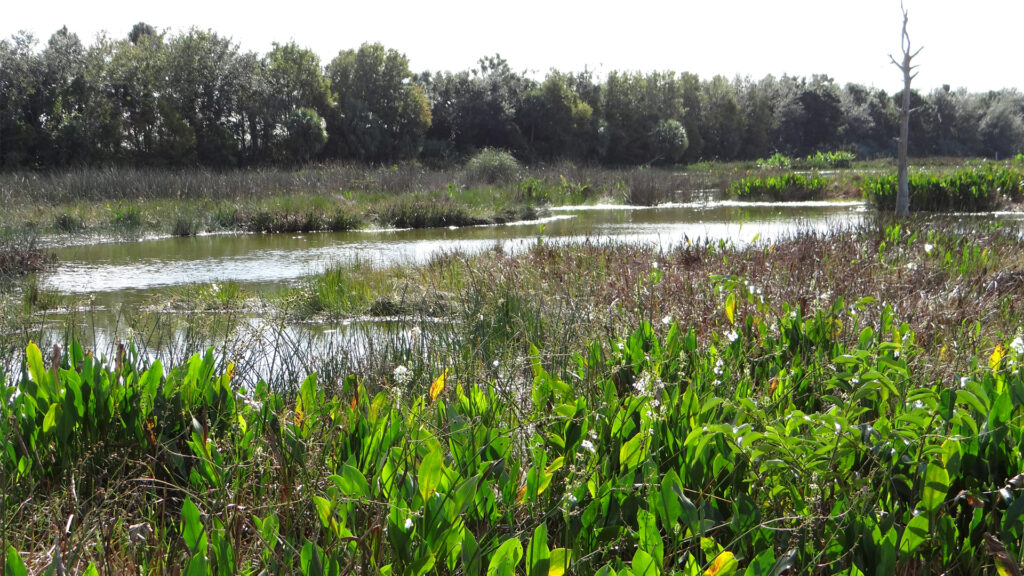By Cheryl Lasse, Right to Clean Water ambassador
On May 24, pro-sprawl Florida Senate Bill 540 was signed into law. On May 25, the U.S. Supreme Court limited the ability of the Environmental Protection Agency to protect wetlands. Not a good week!
Both decisions were made despite environmental groups stating the obvious – that water quality, already bad, will only worsen. That will lead to economic and social impacts – what tourists want to vacation on a beach covered with dead fish?

Normally, I would cry out, “We’re done!” But we have one last hope to mitigate the damage, at least in Florida, which is the proposed Right to Clean Water state amendment.
Some people think we already have a constitutional right that protects us against water pollution. We do not, not at the federal nor the state level. Article II, section 7(a) of the Florida Constitution states in pertinent part: “Adequate provision shall be made by law for the abatement of air and water pollution …” This is a policy statement and does not create any enforceable constitutional rights.
And Article II, section 7(b) states in part: “Those in the Everglades Agricultural Area who cause water pollution within the Everglades Protection Area or the Everglades Agricultural Areas shall be primarily responsible for paying the costs of abatement of that pollution.” However, the Florida Supreme Court determined that it is not self-executing, effectively nullifying its effect. In other words, we have no enforceable constitutional rights to clean water.
Some people think that we need a right to clean water, but it shouldn’t be part of the Florida Constitution. It’s important to understand the legal hierarchy. At the top is the U.S. Constitution. At the state level, it’s followed by the Florida Constitution and then Florida laws.
If the Legislature were to pass clean water legislation, another Legislature could change or repeal it. However, adding the proposed, self-executing Right to Clean Water amendment to our state constitution makes it indefeasible: it cannot be annulled or overturned by the Legislature. That’s critical.
The Right to Clean Water amendment creates a fundamental right to clean and healthy waters, clarifies prohibited actions and inactions that harm (or threaten to harm) waters, and defines important terms, such as what “clean and healthy waters” and “harm” mean specifically.
It also allows Floridians to enforce this right through the ability to sue state executive agencies that violate it, empowering courts to look at the science and truth (not politics) of what’s going on before deciding to prevent the harm or restore water quality to its previous state.
Let’s put this into context. SB 540 is called the “death knell” because if a developer pitches a bad plan to the local government, who chooses to allow it when it clearly violates their master plan, citizens will be unable to afford to sue to stop it, given that it will wipe them out financially. Many developers are responsible and respect the plans in place, but there are others who clearly are not (see Split Oak).
With the Right to Clean Water, any plans that harm or threaten to harm waters will be prevented from moving forward. Constitutional rights prevail.
Regarding the wetlands decision, without the Right to Clean Water amendment, anyone could fill in a wetland so long as it is not connected to a larger, regulated body of water. Wetlands have two main attributes that protect us: They filter out pollutants, protecting the water that gets into the aquifer/drinking source, and they serve as a sponge, absorbing rainfall (think hurricanes), thereby mitigating flooding.

The proposed amendment includes wetlands, and our fundamental right to clean and healthy wetlands would override the permitted rights of developers to cause them harm. You’ll appreciate that if you live near a former wetland and your house was flooded by a storm.
So, this is my “mayday” cry. We need you – people, businesses, organizations – to help get this amendment on the ballot where we are confident it will pass, because history shows Floridians overwhelmingly support environmental protection initiatives.
We need 900,000 signed petitions by Nov. 30. Go to https://www.floridarighttocleanwater.org/petition to print and sign the petition – or do so at one of our many events and petition locations. Get five people to sign one too. Volunteer through our website to help us get this over the finish line.
Mayday: Time is running out to save the waters in our state!
Cheryl Lasse is an independent Florida business owner and Right to Clean Water ambassador.



